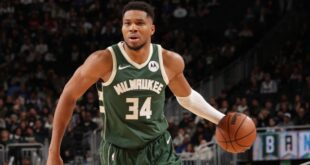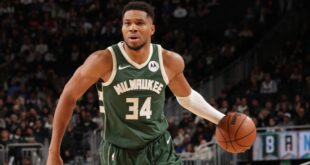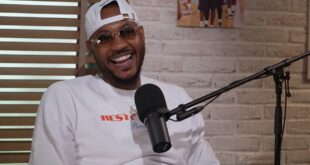When it comes to nicknames, the title given to the 2008 Team USA men’s basketball squad — “Redeem Team” — doesn’t quite measure up to the legendary one bestowed upon the team 16 years earlier, the “Dream Team” of 1992. This iconic assembly, regarded by many as the finest collection of talent in any professional sport, showcased an incredible lineup featuring icons like Michael Jordan, Magic Johnson, Larry Bird, Charles Barkley, Karl Malone, John Stockton, among others. The inaugural participation of NBA players in the Olympics dominated the competition, creating a sensation in Barcelona and making any thoughts of a follow-up edition seem trivial. The prowess of Jordan, Johnson, Bird, and their teammates transcended the sport.
However, the “Redeem Team” — set to be inducted this weekend into the Naismith Memorial Basketball Hall of Fame — may have faced a more daunting task than that of the 1992 team. The original squad was primarily tasked with demonstrating America’s basketball dominance in a realm traditionally occupied by amateurs. By contrast, the world’s top national teams were developing their players and establishing continuity in ways that were increasingly difficult for a makeshift roster of college athletes to match every four years.
In 2008, the team — boasting stars like Kobe Bryant, LeBron James, Dwyane Wade, Carmelo Anthony, and Jason Kidd — had the monumental responsibility of rectifying a troubling trend for Team USA, which included a surprising defeat at the 2004 Athens Olympics as well as disappointing performances in the 2002 and 2006 FIBA World Championships.
After a sweep of gold in 1992, 1996, and 2000, the NBA representatives finished sixth in 2002, followed by bronze medals in 2004 and 2006.
“I still believe we are the best and the benchmark for the world, but other countries are catching up,” Hall of Fame coach George Karl remarked after the 2002 World Cup debacle in Indianapolis, where the team suffered losses to Argentina, Yugoslavia, and Spain within just a few days. “They defeated us, and they did it on our home soil. We have to acknowledge their success.”
Karl’s more commonly quoted statement followed the disheartening results. “The greed and money in the NBA,” he noted, “Does it impact our competitiveness? Absolutely, that’s a valid point.”
The situation deteriorated before it improved.
The squad that coach Larry Brown took to Athens in 2004 was plagued by injuries and scheduling issues, with nine of the 12 USA players who had secured the 2003 FIBA Americas title unavailable. Only Tim Duncan, Allen Iverson, and Richard Jefferson returned. Key veterans such as Shaquille O’Neal, Kevin Garnett, Ray Allen, Bryant, and Kidd were absent from competition.
Consequently, the roster leaned younger, featuring newly added stars like James, Wade, and Anthony following their rookie campaigns. Brown — who had instilled a “right way to play” approach that led his Philadelphia 76ers to the 2001 NBA Finals — imposed discipline on the assembly of assorted talent, restricting playing time for younger athletes.
The overconfidence that any twelve NBA players could easily defeat the world quickly dissipated. In their 2004 opener, Puerto Rico shocked Team USA with a 92-73 victory. This result sent a clear message to other national teams that the once untouchable could be beaten. Six days later, Lithuania triumphed, followed by Argentina, which, powered by Spurs guard Manu Ginobili, dealt the Americans an 89-81 loss that eliminated them from gold medal contention.
“It was painful to watch,” Wade recounted, “and being part of it was equally frustrating.”
At that time, sources indicated then-NBA commissioner David Stern was contemplating withdrawing the league’s players from international competition altogether. Instead, he turned to Jerry Colangelo, former general manager and owner of the Phoenix Suns, who had recently sold the team. Colangelo was seeking a new undertaking and agreed to take on the role of Team USA director, provided he would have full control over selecting the coaches and players.
What was Colangelo’s strategy? To tackle the issue of continuity, he aimed to secure NBA stars for a three-year commitment. His reputation and persuasive abilities attracted players eager for an invitation. Bryant committed, Kidd returned, and four players from the previous failed effort — James, Wade, Anthony, and Carlos Boozer — were now presented with a chance to make amends.
This Redeem Team encountered a more formidable challenge than the Dream Team, partly because the latter had significantly elevated the sport’s and the league’s appeal internationally. By 2008, opponents featured a plethora of NBA players, making the competition fiercer, even with FIBA regulations and gameplay adjustments necessitated in the U.S.
Colangelo chose Duke coach Mike Krzyzewski to lead the team, opting for him over Spurs coach Gregg Popovich. Krzyzewski’s history of fostering disciplined and selfless play was deemed crucial for reshaping Team USA’s strategy. Managing a roster of wealthy NBA stars, many of whom had never played in college, proved challenging, but the focus was on instilling camaraderie and humility.
“We must be devoted to one another before we can be committed to the team,” Krzyzewski expressed early on. “You don’t just ‘select a team’ — you pick individuals and hope they unite as a team.”
The painful defeat to Greece in the 2006 World semifinals in Japan was a harsh lesson, yet Krzyzewski and his group embraced it as part of their growth process. Bryant joined the team in the summer of 2007, reportedly stating to Anthony, “I’m tired of watching you all lose,” lending an intense competitive spirit to the squad.
Having advanced well into his career, Bryant was several years senior to players like James, Anthony, Wade, Chris Paul, and Chris Bosh. He epitomized a generational icon akin to Jordan, bringing his own set of strengths and experiences. The 2008 Olympics would mark his debut on this stage, and he set a precedential standard through relentless defense, diving into scrums for loose balls, and leading others with his early morning training sessions.
Bryant astonished his teammates during a preliminary match against Spain, promising to level Lakers teammate Pau Gasol at the first chance, and he did just that.
Team USA triumphed over Gasol’s squad by 37 points that day. They then avenged their loss to Argentina in 2004, defeating them — along with a limping Ginobili — by 20. Early foul troubles for both Bryant and James allowed Wade to take center stage in the gold medal match against Spain. Down the stretch, Bryant was pivotal in securing a 118-107 victory.
Eager to excel, Wade led Team USA with an average of 16 points per game in Beijing, while James contributed 15.5 with an impressive shooting percentage of 60%. Bryant, taking the most attempts with 13 per game, averaged 15 points. Anthony shifted roles from being a primary scorer to a supportive contributor, a transition that proved beneficial in later tournaments in 2012 and 2016.
Kobe Bryant emerged as both a veteran presence and crucial scoring asset for the 2008 U.S. Men’s National Team.
“I felt joy, I felt relief,” Anthony reflected in the 2022 Netflix documentary centered on the Redeem Team. “We achieved it. We united for a purpose.”
“My jersey didn’t display ‘Denver Nuggets,’ and ‘Bron’s didn’t say ‘Cleveland,’ nor did Kobe’s say ‘Lakers.’ We represented ‘USA.’”
Seventeen years later, they reunite, heading to the Naismith Hall following Saturday’s enshrinement at Symphony Hall in Springfield, Massachusetts. The global landscape of basketball continues to shift — the last seven Kia Most Valuable Player awards have been claimed by international players, and last season saw 125 foreign athletes from 43 countries in the NBA.
Yet Team USA has claimed gold at every Olympics since Beijing — in London, Rio de Janeiro, Tokyo, and Paris — with an impressive 36-game winning streak. The order established in 2008 remains intact.
Wade remarked, “We were on a redemption mission, and we accomplished that. We restored USA Basketball to its former global greatness.”
* * *
Steve Aschburner has been covering the NBA since 1980. You can contact him via email, explore his archives, and follow him on social media.
 NBA News NBA News, Match Reports and Updates
NBA News NBA News, Match Reports and Updates



